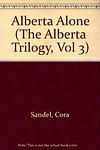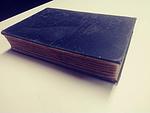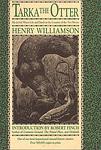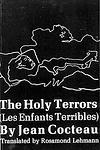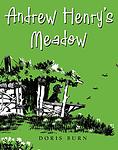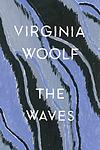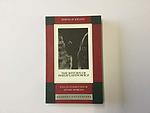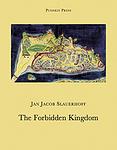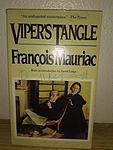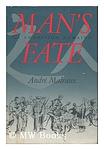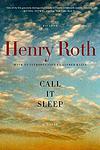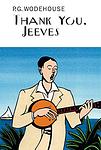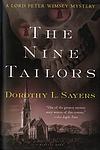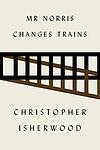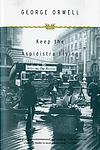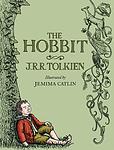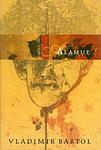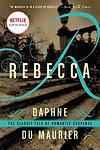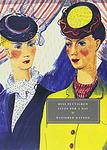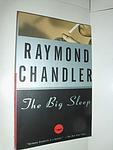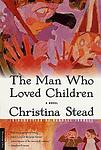1001 Books You Must Read Before You Die
This is one of the 300 lists we use to generate our main The Greatest Books list.
-
The Alberta Trilogy by Cora Sandel
"The Alberta Trilogy" is a series of three novels that follow the life of Alberta Selmer, a young woman growing up in a small Norwegian town in the early 20th century. The trilogy explores Alberta's struggle with societal expectations, her pursuit of independence and her journey to becoming a painter. Set against the backdrop of a harsh Norwegian landscape, the series highlights the protagonist's struggle with poverty, her relationships, and her exploration of her identity and place in the world.
The 1336th Greatest Book of All Time -
The Castle by Franz Kafka
This novel presents the story of a man who arrives in a village and struggles to gain access to the mysterious authorities who govern it from a castle. The protagonist, a surveyor, faces the constant frustration of his efforts to make contact with the elusive authorities and integrate into village society. The book explores themes of alienation, bureaucracy, the seemingly endless frustrations of man's attempts to stand against the system, and the futile pursuit of an unobtainable goal.
The 133rd Greatest Book of All Time -
Blindness by Henry Green
This novel follows the life of a young man who becomes blind after an accident. Despite his disability, he continues to live his life fully, engaging in love affairs and adventures. The book explores themes of resilience, determination, and the human spirit's ability to adapt and thrive in the face of adversity. The protagonist's blindness serves as a metaphor for the human condition, highlighting the idea that we are all blind in some way, whether literally or metaphorically.
The 1925th Greatest Book of All Time -
The Sun Also Rises by Ernest Hemingway
The novel is a poignant tale set in the 1920s post-World War I era, focusing on a group of American and British expatriates living in Paris who travel to Pamplona, Spain for the annual Running of the Bulls. The story explores themes of disillusionment, identity, and the Lost Generation, with the protagonist, a war veteran, grappling with impotence caused by a war injury. The narrative is steeped in the disillusionment and existential crisis experienced by many in the aftermath of the war, and the reckless hedonism of the era is portrayed through the characters' aimless wanderings and excessive drinking.
The 48th Greatest Book of All Time -
Amerika by Franz Kafka
This novel tells the story of a young immigrant, Karl Rossmann, who after an unfortunate incident is sent by his parents to America. The narrative follows his journey through a strange new world, where he encounters a variety of eccentric characters and experiences a series of bizarre and often surreal situations. Throughout his journey, the protagonist struggles with feelings of alienation and the harsh realities of the American Dream, while trying to navigate the complexities of life in a foreign land.
The 645th Greatest Book of All Time -
The Case of Sergeant Grischa by Arnold Zweig
The book tells the story of Sergeant Grischa, a Russian POW who escapes from a German prison camp during World War I. After assuming the identity of a dead comrade to evade capture, he is eventually caught and sentenced to death for desertion. Despite several attempts by various individuals to save him, bureaucratic and military rigidity prevent his exoneration. The novel explores the themes of justice, humanity, and the absurdity of war.
The 2435th Greatest Book of All Time -
Tarka the Otter by Henry Williamson
"Tarka the Otter" is a novel that follows the life of an otter, Tarka, in the wild. The story is set in North Devon, England and provides a detailed account of Tarka's experiences, from his birth to his eventual death, exploring his interactions with other animals, his struggles for survival, and his encounters with humans. The narrative is noted for its vivid and realistic descriptions of wildlife and the natural world.
The 1404th Greatest Book of All Time -
To the Lighthouse by Virginia Woolf
This novel is a pioneering work of modernist literature that explores the Ramsay family's experiences at their summer home on the Isle of Skye in Scotland. The narrative is divided into three sections, focusing on a day in the family's life, a description of the house during their absence, and their return after ten years. The book is known for its stream of consciousness narrative technique and its exploration of topics such as the passage of time, the nature of art, and the female experience.
The 35th Greatest Book of All Time -
In Search of Lost Time by Marcel Proust
This renowned novel is a sweeping exploration of memory, love, art, and the passage of time, told through the narrator's recollections of his childhood and experiences into adulthood in the late 19th and early 20th century aristocratic France. The narrative is notable for its lengthy and intricate involuntary memory episodes, the most famous being the "madeleine episode". It explores the themes of time, space and memory, but also raises questions about the nature of art and literature, and the complex relationships between love, sexuality, and possession.
The 6th Greatest Book of All Time -
Steppenwolf by Hermann Hesse
The novel presents a poignant exploration of a man's struggle with his dual nature. The protagonist, a middle-aged man, finds himself torn between his humanistic, intellectual tendencies and his more primitive, wolf-like instincts. As he navigates his way through the surreal and sometimes hallucinatory world, he encounters various characters who challenge his views and push him towards self-discovery and transformation. The narrative delves into themes of alienation, the subconscious mind, and the search for meaning in life.
The 147th Greatest Book of All Time -
Nadja by André Breton
The novel is a surrealistic exploration of the narrator's relationship with a young woman named Nadja. As the narrator becomes infatuated with Nadja, their encounters become more and more dreamlike. The book delves into the nature of reality and the power of the subconscious mind, blurring the lines between dreams and reality. It is also a commentary on the socio-political climate of Paris in the early 20th century, showcasing the author's views on art, life, and love.
The 756th Greatest Book of All Time -
Quicksand by Nella Larsen
"Quicksand" is a semi-autobiographical novel about a mixed-race woman named Helga Crane who, feeling out of place in both African-American and white societies, embarks on a journey of self-discovery. From the Southern United States to Denmark and back, she struggles with racial identity, sexual repression, and societal expectations, eventually marrying a reverend and becoming disillusioned with her life as a preacher's wife in the rural South. The novel explores themes of racial identity, class, and gender in the early 20th century.
The 1426th Greatest Book of All Time -
Decline and Fall by Evelyn Waugh
This novel follows the story of Paul Pennyfeather, a young man studying at Oxford University who is unfairly expelled and forced to take a job as a teacher at a chaotic school in Wales. His life takes a turn when he meets a wealthy widow and gets sucked into the high society lifestyle, only to be betrayed and sent to prison. The narrative is a satirical critique of the British class system, education, and the moral corruption of the rich.
The 817th Greatest Book of All Time -
Some Prefer Nettles by Junichiro Tanizaki
"Some Prefer Nettles" is a novel that explores the complexities of a failing marriage in early 20th century Japan. The main characters, a husband and wife, are both aware of their fading love for each other and are drawn to other people, but are hesitant to divorce due to societal pressures and the welfare of their young son. The novel also delves into the cultural tension between traditional Japanese customs and the encroaching influence of Western culture.
The 958th Greatest Book of All Time -
Parade's End by Ford Madox Ford
The novel chronicles the life of Christopher Tietjens, an officer in the British Army during World War I, and his complex relationships with two women: his adulterous wife Sylvia and a young suffragette named Valentine. The story is set against the backdrop of a changing society and the devastation of war, exploring themes of duty, honor, and the struggle between traditional values and modernism.
The 549th Greatest Book of All Time -
The Well of Loneliness by Radclyffe Hall
"The Well of Loneliness" is a groundbreaking novel that explores the life of a woman named Stephen Gordon, who identifies as a lesbian in early 20th century England. The story delves into the societal and personal struggles Stephen faces due to her sexual orientation, including isolation, rejection, and the struggle for acceptance. The novel is a plea for understanding and tolerance, shedding light on the challenges faced by the LGBTQ+ community during a time when their identities were largely misunderstood and stigmatized.
The 668th Greatest Book of All Time -
Lady Chatterley's Lover by D. H. Lawrence
"Lady Chatterley's Lover" is a controversial novel that explores themes of class, sexuality, and the human condition. The story revolves around a young, upper-class woman married to a paralyzed war veteran who, feeling emotionally and physically neglected, embarks on a passionate affair with the estate's gamekeeper. The narrative delves into the protagonist's sexual awakening and her struggle against societal norms, ultimately advocating for emotional honesty and physical intimacy as essential components of a fulfilling life.
The 181st Greatest Book of All Time -
Orlando: A Biography by Virginia Woolf
The novel follows the life of a young nobleman in Elizabethan England who inexplicably transforms into a woman at the age of 30 and lives on for three centuries without aging. Throughout the centuries, the protagonist experiences various historical events, engages in relationships with both men and women, and explores the complexities of gender identity and sexuality. The book is an exploration of the fluidity of gender and time, as well as a critique of societal norms and expectations.
The 146th Greatest Book of All Time -
Story of the Eye by Georges Bataille
This novel is a provocative exploration of the dark side of human nature, featuring two teenage characters who engage in increasingly bizarre and violent sexual games. Their actions, driven by their obsession with eroticism and death, lead them into a world of perversion and madness. The narrative is filled with explicit sexual content and shocking imagery, reflecting the author's fascination with the transgressive and the taboo.
The 997th Greatest Book of All Time -
Retreat Without Song by Shahan Shahnour
"Retreat Without Song" is a poignant narrative of the Armenian diaspora, focusing on the life of an immigrant living in Paris during the early 20th century. The protagonist grapples with feelings of alienation, despair, and disillusionment as he navigates his new life in a foreign land while dealing with the haunting memories of his homeland and the Armenian genocide. The novel explores themes of identity, exile, and the psychological impact of displacement, providing a deep insight into the human condition and the struggle for survival.
The 2435th Greatest Book of All Time -
Les Enfants Terribles by Jean Cocteau
"Les Enfants Terribles" is a haunting tale of sibling love and rivalry. The story revolves around two siblings, Elisabeth and Paul, who create a private world of their own, isolated from the outside world, in a Parisian apartment. Their intense bond is both destructive and all-consuming, causing them to reject the outside world and its conventions. This results in a tragic ending, as their intense relationship leads to a series of unfortunate events, including heartbreak, manipulation, and ultimately, death.
The 1108th Greatest Book of All Time -
Berlin Alexanderplatz by Alfred Döblin
Set in 1920s Berlin, the book follows the life of Franz Biberkopf, a man recently released from prison who is trying to make an honest life for himself. However, he is drawn back into the criminal underworld due to circumstances and the influence of his acquaintance, Reinhold. The book is a vivid portrayal of city life in Weimar-era Germany, exploring themes of poverty, crime, redemption and the struggle to maintain one's morality amidst chaos and corruption.
The 320th Greatest Book of All Time -
All Quiet on the Western Front by Erich Maria Remarque
The novel tells the story of a young German soldier, Paul Bäumer, and his experiences during World War I. The narrative explores the physical and emotional toll of war, the camaraderie between soldiers, and the disillusionment of a generation thrown into a brutal conflict. The protagonist and his friends grapple with survival, fear, and the loss of innocence, providing a stark and poignant critique of the futility and destructiveness of war.
The 105th Greatest Book of All Time -
The Time of Indifference by Alberto Moravia
This novel explores the dynamics of an upper-middle-class Italian family facing financial ruin. The story focuses on the emotional indifference and moral decay among family members, as they engage in affairs and manipulative behavior to secure their social status. As the family's fortunes dwindle, their lack of empathy and moral integrity becomes increasingly evident, offering a critique of bourgeois values and the corrosive effects of apathy and materialism.
The 1558th Greatest Book of All Time -
Living by Henry Green
"Living" is a novel that offers a vivid and absorbing depiction of the British working class in the 1920s. The narrative follows the lives of factory workers and their families in Birmingham, focusing on the minutiae of their daily lives, their struggles, hopes, and dreams. The novel is renowned for its unique style of writing, which eliminates definite articles and uses industrial Midlands dialect, creating a distinctive rhythm and cadence that mirrors the repetitive nature of factory work.
The 1297th Greatest Book of All Time -
I Thought of Daisy by Edmund Wilson
This book follows the story of a young man in New York City during the Roaring Twenties who falls in love with a free-spirited woman named Daisy. As he navigates through the ups and downs of his relationship with Daisy and the complexities of his own life, he is forced to confront his own insecurities and fears. The narrative explores themes of love, loss, and the struggle for personal identity amidst the backdrop of a rapidly changing society.
The 2435th Greatest Book of All Time -
A Farewell to Arms by Ernest Hemingway
Set during World War I, the novel follows an American ambulance driver in the Italian army and his love affair with a British nurse. The story is a first-person account of the protagonist's experiences in war and his struggle to survive amidst chaos and destruction. The narrative explores themes of love, war, and the fragility of life, culminating in a tragic ending that underscores the futile nature of war and the inevitable suffering it brings.
The 116th Greatest Book of All Time -
Passing by Nella Larsen
"Passing" is a novel about two light-skinned African-American women, Irene Redfield and Clare Kendry, who can 'pass' as white. Set during the Harlem Renaissance, the story explores the intricacies and challenges of racial identity in 1920s America. Clare, who has chosen to live as a white woman, married to a racist who is unaware of her true heritage, risks everything when she reconnects with her childhood friend Irene, causing both women to grapple with their identities and desires, leading to tragic consequences.
The 543rd Greatest Book of All Time -
Look Homeward, Angel by Thomas Wolfe
The novel tells the story of Eugene Gant, a brilliant and restless young man whose passion for a greater intellectual life shapes his adolescent years in rural North Carolina. Eugene's story is a deeply personal reflection of the author's own life, filled with vivid, poetic descriptions of the North Carolina landscape. The narrative explores themes of family, ambition, and the desire for a life beyond the confines of a small town.
The 303rd Greatest Book of All Time -
The Maltese Falcon by Dashiell Hammett
This classic detective novel follows a private investigator who is hired by a mysterious woman to track down her missing sister. The case quickly becomes complicated when the investigator is caught up in a dangerous hunt for a priceless artifact, the Maltese Falcon. As he navigates a world of treachery, deceit, and murder, he must use his wit and courage to outsmart his enemies and solve the mystery.
The 145th Greatest Book of All Time -
Her Privates We by Frederic Manning
"Her Privates We" is a gripping and gritty account of the life of a British soldier during World War I. The novel provides an unflinchingly honest portrayal of the horrors of war, the camaraderie among soldiers, and the struggle to maintain humanity in the face of relentless suffering. It explores the protagonist's internal conflict as he grapples with the morality of war, the value of life, and the cost of duty.
The 2435th Greatest Book of All Time -
The Apes of God by Wyndham Lewis
"The Apes of God" is a satirical novel that critiques the literary and artistic scene of 1920s London. The narrative follows a naive young man from the English countryside who becomes entangled in the pretentious and superficial world of London's modernist elite. The book is known for its biting wit, complex character portrayals, and intricate plot, providing a scathing critique of the cultural and intellectual pretensions of the time.
The 2435th Greatest Book of All Time -
Monica by Saunders Lewis
"Monica" is a historical novel set in the 19th century that explores the life of a Welsh woman named Monica. The narrative provides a vivid portrayal of her struggles and experiences as she navigates through the societal norms and expectations of her time. The book is a rich tapestry of Welsh culture and history, highlighting the complexities of gender roles, social class, and the human condition.
The 2435th Greatest Book of All Time -
Insatiability by Stanisław Ignacy Witkiewicz
The novel is a dystopian narrative set in a future where a new Asian empire has conquered Europe. The story follows a young Polish man who, while initially indulging in hedonistic pursuits, becomes increasingly disillusioned with the world around him. As the new empire introduces a mysterious substance known as Murti-Bing pills, which create a sense of contentment and indifference in the populace, the protagonist grapples with the loss of individuality and the erosion of human spirit in society. The narrative is a critique of totalitarian regimes and the dangers of mass conformity.
The 2435th Greatest Book of All Time -
The Waves by Virginia Woolf
"The Waves" is a novel that follows the lives of six friends from childhood to old age, using an innovative narrative style that intertwines their individual voices into a collective stream of consciousness. The novel explores themes of individual identity, the passage of time, and the human condition, presenting a unique and poetic meditation on the nature of life and death.
The 379th Greatest Book of All Time -
To the North by Elizabeth Bowen
The novel follows the life of a young woman who, after the death of her husband, moves to London and falls in love with her sister-in-law's lover. The narrative dives deep into the complexities of human relationships and emotions, exploring themes of love, betrayal, and loss. As the protagonist navigates her way through grief and fresh love, the readers are offered a profound exploration of her internal struggles, painting a vivid picture of her emotional journey.
The 2435th Greatest Book of All Time -
The Thin Man by Dashiell Hammett
This detective novel follows a retired private investigator, Nick Charles, who, while on a Christmas vacation in New York with his wife Nora, becomes embroiled in a murder investigation. The case involves a former client of his, Clyde Wynant, who has mysteriously disappeared after his secretary was found dead. As the investigation unfolds, Nick and Nora navigate a complex web of deceit, lies, and family drama, all while maintaining their witty banter and high-society lifestyle.
The 735th Greatest Book of All Time -
Journey to the End of The Night by Louis-Ferdinand Céline
The novel is a semi-autobiographical work that explores the harsh realities of life through the cynical and disillusioned eyes of the protagonist. The narrative follows his experiences from the trenches of World War I, through the African jungles, to the streets of America and the slums of Paris, showcasing the horrors of war, colonialism, and the dark side of human nature. The protagonist's journey is marked by his struggle with despair, loneliness, and the absurdity of existence, offering a bleak yet profound commentary on the human condition.
The 123rd Greatest Book of All Time -
The Return of Philip Latinowicz by Miroslav Krleža
"The Return of Philip Latinowicz" is a novel about a successful artist who, after living in the city for three decades, decides to return to his rural hometown in order to find inspiration for his next piece of work. As he reconnects with his past and the people from his childhood, he begins to question the meaning of his art and his own identity. The book explores themes of existentialism, the nature of art, and the struggle between modernity and tradition.
The 2435th Greatest Book of All Time -
The Radetzky March by Joseph Roth
"The Radetzky March" is a historical novel that explores the decline and fall of the Austro-Hungarian Empire through the experiences of the Trotta family, across three generations. The narrative begins with Lieutenant Trotta, who saves the life of the Emperor during the Battle of Solferino, and follows his descendants as they navigate the complexities of life in the empire. The novel delves into themes of duty, honor, and the inevitability of change, painting a vivid picture of a society in decline.
The 552nd Greatest Book of All Time -
The Forbidden Kingdom by Jan Jacob Slauerhoff
"The Forbidden Kingdom" is a historical fiction novel that intertwines the stories of two men, a 20th century sailor and 16th century Portuguese poet, Luis Camões. The narrative alternates between the two, exploring the sailor's obsession with the poet's life and the poet's experiences in the East, including his journey to Macao. The book delves into themes of identity, obsession, and the clash of Eastern and Western cultures.
The 2435th Greatest Book of All Time -
Cold Comfort Farm by Stella Gibbons
When a young, sophisticated woman is suddenly orphaned and left penniless, she decides to live with her eccentric relatives on their rundown farm. Using her urban sensibilities and wit, she sets about bringing order to the chaos and improving the lives of her relatives. Through her efforts, she manages to transform the gloomy, grim farm into a place of happiness and productivity. This novel is a hilarious parody of romantic, pastoral novels and is filled with eccentric characters and absurd situations.
The 229th Greatest Book of All Time -
Brave New World by Aldous Huxley
Set in a dystopian future, the novel explores a society where human beings are genetically bred and pharmaceutically conditioned to serve in a ruling order. The society is divided into five castes, each with its specific roles. The narrative follows a savage who rejects the norms of this new world order and struggles to navigate the clash between the values of his upbringing and the reality of this technologically advanced, emotionless society. His resistance prompts a deep examination of the nature of freedom, individuality, and happiness.
The 42nd Greatest Book of All Time -
Viper’s Tangle by François Mauriac
"Viper's Tangle" is a psychological novel that tells the story of a wealthy lawyer who, in his old age, becomes increasingly bitter and misanthropic. The protagonist writes a series of letters to his wife, expressing his deep resentment towards his family who he believes are only interested in his fortune. As he grapples with his own mortality and the meaninglessness of his life, he experiences a spiritual awakening that leads him to reconsider his views on love, family, and faith.
The 2435th Greatest Book of All Time -
The Man Without Qualities by Robert Musil
"The Man Without Qualities" is a satirical novel set in Vienna during the last days of the Austro-Hungarian Empire. It follows the life of Ulrich, a thirty-two-year-old mathematician, who is in search of a sense of life and reality but is caught up in the societal changes and political chaos of his time. The book explores themes of existentialism, morality, and the search for meaning in a rapidly changing world.
The 143rd Greatest Book of All Time -
Cheese by Willem Elsschot
The novel revolves around a Dutchman living in Antwerp, Belgium, who is persuaded by his brother to enter the cheese business. He invests in 10,000 full-cream cheeses and sets up an office, but struggles to sell any of his stock. As he grapples with the nuances of the cheese trade, his personal life and professional relationships also begin to crumble, leading to a series of comical and tragic events. The book is a satirical commentary on business, ambition, and the absurdity of life.
The 1558th Greatest Book of All Time -
Man's Fate by Andre Malraux
Set in 1920s Shanghai during a time of political upheaval, the novel explores the existential themes of life, death, and the human condition through the experiences of a group of revolutionaries. The narrative follows their struggles and sacrifices for their cause, the Communist revolution, and their inevitable confrontation with their own mortality and the harsh realities of life. The book delves into the complexities of political ideologies, human relationships and the constant struggle between hope and despair.
The 246th Greatest Book of All Time -
A Day Off by Storm Jameson
"A Day Off" is a novel that depicts a day in the life of a middle-aged woman named Eleanor, who is struggling with the mundanity and hardships of her life. Eleanor, who is married to an unfaithful husband and has a strained relationship with her daughter, decides to take a day off from her routine. Throughout the day, she reflects on her life, her dreams, regrets, and the choices she has made. The novel poignantly explores themes of love, loss, and the human condition.
The 2435th Greatest Book of All Time -
Testament Of Youth by Vera Brittain
Testament of Youth is a poignant memoir detailing the author's experiences during World War I. The narrative follows her journey from her early life, her time as a Voluntary Aid Detachment nurse serving in London, Malta, and France, and her later years as a writer and pacifist. The author's personal loss, including the death of her fiancé and her brother, and the impact of the war on her generation, is a central theme, offering a unique female perspective on the devastating effects of war.
The 541st Greatest Book of All Time -
The Autobiography of Alice B. Toklas by Gertrude Stein
This book is an innovative and unconventional autobiography, penned from the perspective of the author's life partner, providing an intimate view into the lives of the Parisian avant-garde in the early 20th century. It offers a personal account of their life together, filled with anecdotes of their interactions with famous figures such as Picasso, Matisse, and Hemingway. The narrative also delves into the author's own thoughts and experiences, creating a unique blend of biography, autobiography, and personal memoir.
The 439th Greatest Book of All Time -
Murder Must Advertise by Dorothy L Sayers
When a copywriter at an advertising agency suspiciously dies in a fall, a private detective goes undercover to investigate the circumstances. He discovers a world of drugs, blackmail, and deceit hidden behind the agency's seemingly ordinary facade. As he delves deeper, he must unravel a web of secrets and lies to solve the murder, all while maintaining his cover and navigating the competitive world of advertising.
The 874th Greatest Book of All Time -
Miss Lonelyhearts by Nathanael West
This novel revolves around an advice columnist, who writes under the pseudonym "Miss Lonelyhearts", for a New York newspaper during the Great Depression. As he reads and responds to the desperate letters from the city's distressed and downtrodden, he becomes increasingly disillusioned and depressed, struggling with his own faith, identity, and the bleakness of the human condition. The protagonist's personal life also spirals out of control, entangling him in a series of complicated romantic relationships and leading to a tragic conclusion.
The 722nd Greatest Book of All Time -
Call It Sleep by Henry Roth
This novel tells the story of a young Jewish boy, David Schearl, who immigrates to New York City with his mother in the early 20th century. The narrative explores David's struggles to understand his harsh father, his experiences with anti-Semitism and poverty in the Lower East Side, and his journey of self-discovery through his vivid imagination. The boy's fears and dreams are depicted through a stream-of-consciousness narrative technique, providing a powerful exploration of the immigrant experience and the harsh realities of the American dream.
The 455th Greatest Book of All Time -
The Street of Crocodiles by Bruno Schulz
"The Street of Crocodiles" is a collection of short stories set in a small town in Poland, illustrating the author's unique perspective on reality. The book portrays the narrator's father's eccentricities and his vivid, often disturbing, imagination. The stories are filled with bizarre, dreamlike imagery and metaphors, presenting a surreal and grotesque view of everyday life. The book is a profound exploration of human nature, memory, and the power of imagination.
The 1975th Greatest Book of All Time -
Thank You, Jeeves by P. G. Wodehouse
In this humorous story, a British aristocrat and his valet find themselves in a series of comedic situations. The aristocrat's banjo playing has led to his eviction from his apartment, forcing him to take refuge in the country, where he becomes embroiled in a scheme to steal a policeman's helmet for a wager. Meanwhile, his valet must navigate a complex love triangle involving a fiery-tempered opera singer, a mild-mannered poet, and a jealous fiance. The pair's quick wit and unflappable demeanor carry them through these and other predicaments, providing plenty of laughs along the way.
The 1158th Greatest Book of All Time -
Tender Is the Night by F. Scott Fitzgerald
Set in the French Riviera in the 1920s, the novel traces the tragic tale of a young psychiatrist, his beautiful wife, and the drama that unfolds amongst their circle of wealthy expatriate friends. The psychiatrist's wife suffers from mental illness, which leads to his own downfall as he struggles to keep his marriage intact and maintain his professional reputation. The narrative explores themes of wealth, love, desire, and the destructive power of obsession, painting a haunting portrait of the dark side of the glamorous Jazz Age.
The 165th Greatest Book of All Time -
Tropic of Cancer by Henry Miller
The book is a semi-autobiographical novel set in 1930s Paris and describes the protagonist's life as a struggling writer. The narrative is filled with vivid descriptions of the city, sexual encounters, and philosophical musings, all penned in a stream-of-consciousness style. The protagonist's experiences living in poverty, his relationships with other expatriates, and his pursuit of artistic freedom are central to the story. Despite the explicit content, the novel is noted for its candid exploration of the human condition and the author's quest for personal and creative authenticity.
The 224th Greatest Book of All Time -
The Postman Always Rings Twice by James M. Cain
This novel is a thrilling tale of passion, murder, and betrayal. The story revolves around a drifter who becomes involved in an adulterous affair with a married woman. Together, they plot to kill her older husband for the insurance money. However, their plan spirals out of control, leading to unexpected consequences and a shocking conclusion. The narrative explores themes of lust, greed, and the destructive power of obsession.
The 459th Greatest Book of All Time -
On the Heights of Despair by Emil Cioran
"On the Heights of Despair" is a philosophical exploration of the human condition, particularly focusing on themes such as existentialism, despair, and nihilism. The author delves into the idea of life as suffering and the inevitability of death, offering a bleak yet thought-provoking perspective on existence. The work is a profound contemplation of life's absurdity, loneliness, and the struggle to find meaning, presenting an introspective journey into the depths of despair and the heights of existential thought.
The 1699th Greatest Book of All Time -
The Bells of Basel by Louis Aragon
"The Bells of Basel" is a novel set against the backdrop of the early 20th century, focusing on three main characters: a revolutionary, a prostitute, and a corporate lackey. Each character represents a different aspect of society, and their stories intertwine to create a rich tapestry of life during this tumultuous period. The novel explores themes of love, betrayal, and political unrest, offering a biting critique of capitalism and the bourgeoisie.
The 2435th Greatest Book of All Time -
The Nine Tailors by Dorothy L Sayers
In this mystery novel, a car accident strands a detective in a small English village during New Year's Eve. He is roped into participating in a nine-hour bell-ringing marathon at the local church. Weeks later, a disfigured body is discovered in a grave, leading to a complex investigation involving stolen emeralds, a decades-old robbery, and a lethal "curse" tied to the tolling of the church bells. The detective must unravel the intricate puzzle to reveal the killer's identity.
The 717th Greatest Book of All Time -
Auto Da Fé by Elias Canetti
"Auto Da Fé" is a story about Peter Kien, a renowned sinologist who is obsessed with his library of books. His life takes a turn when he marries his illiterate housekeeper, Therese, who is only interested in his wealth. After a series of mishaps, Kien is tricked out of his home and ends up living on the streets. The novel explores themes of obsession, intellectualism, and the destructive power of the mind.
The 932nd Greatest Book of All Time -
They Shoot Horses, Don't They? by Horace McCoy
This novel is a bleak depiction of the desperation of the Great Depression, set in the world of a grueling dance marathon. The two main characters, a young man and a woman, meet and form a partnership in order to survive the cruel contest. As they endure physical and mental exhaustion, the woman convinces the man to help her commit suicide, leading to his arrest and conviction for murder. The title refers to the practice of shooting horses that are too injured or old to be useful, suggesting a bleak view of human value and life.
The 2435th Greatest Book of All Time -
Mr Norris Changes Trains by Christopher Isherwood
This novel follows the story of a young Englishman living in Berlin during the early 1930s, who meets and befriends the charming yet mysterious Mr. Norris. As their friendship develops, the protagonist becomes entangled in Mr. Norris's world of political intrigue, espionage, and shady business dealings. The novel is a vivid portrayal of the decadence, political tension, and looming danger of Berlin on the brink of Nazi rule.
The 1558th Greatest Book of All Time -
Untouchable by Mulk Raj Anand
"Untouchable" is a novel that explores a day in the life of a young Indian man, Bakha, who belongs to the lowest caste, the Untouchables. The narrative follows Bakha's experiences of extreme discrimination and humiliation as he performs his job as a latrine cleaner. Despite the harsh realities of his life, Bakha dreams of a better future and is fascinated by the modern world and British rule. The novel provides a poignant critique of the caste system and the social inequalities in India.
The 1148th Greatest Book of All Time -
Independent People by Halldor Laxness
"Independent People" is a novel set in rural Iceland, following the life of a stubborn sheep farmer who values his independence above all else. Despite facing numerous hardships, including poverty, harsh weather, and family strife, he refuses to accept help or compromise his self-reliance. The book explores themes of pride, the struggle for survival, and the human spirit's resilience in the face of adversity.
The 409th Greatest Book of All Time -
Nightwood by Djuna Barnes
"Nightwood" is a modernist novel that explores the complex relationships and sexuality of a group of Americans and Europeans living in Paris in the 1920s. The story primarily revolves around the tumultuous love affair between two women, one of whom is a married aristocrat. The narrative, known for its poetic and dense language, delves deep into the characters' psyches, exploring themes of identity, gender, and desire. The novel is also notable for its frank and groundbreaking depiction of homosexuality and transgender issues.
The 318th Greatest Book of All Time -
At the Mountains of Madness by H. P. Lovecraft
In this chilling tale, an Antarctic expedition led by Dr. William Dyer from Miskatonic University uncovers ancient, alien ruins and a dangerous secret that forces them to question their understanding of the universe and their own sanity. As they delve deeper into the mystery, they encounter remnants of a prehistoric, monstrous civilization, which they believe could have been the original creators of life on Earth. The story is filled with Lovecraft's signature cosmic horror and themes of forbidden knowledge, non-human influences on humanity, and the insignificance of humans in the universe.
The 989th Greatest Book of All Time -
Absalom, Absalom! by William Faulkner
This novel is a complex narrative about Thomas Sutpen, a poor white man who rises to power in the South, aiming to create a dynasty that would rival the old aristocratic families. However, his ambitions are thwarted by his own flawed decisions and the overarching racial and societal tensions of the era. The story is not told in a linear fashion but rather through a series of interconnected flashbacks and narratives, offering different perspectives on the same events. The book explores themes of family, class, race, and the destructive power of obsession.
The 55th Greatest Book of All Time -
War with the Newts by Karel Čapek
The novel is a satirical science fiction tale that explores the discovery of a species of intelligent giant newts. When humans realise they can exploit these creatures for economic gain, they are enslaved and used for labor and military purposes. The newts ultimately rebel, leading to a global war. The book serves as a critique of various political, economic and ideological systems, including colonialism, capitalism and fascism.
The 1538th Greatest Book of All Time -
Keep the Aspidistra Flying by George Orwell
The novel is a social critique of 1930s London, focusing on a man who rebels against the money-dominated society by quitting his job as a copywriter to pursue poetry. He deliberately lives in poverty, rejecting the societal norms of success and material wealth. His rebellion is challenged when he falls in love and must decide between his personal ideals and societal expectations. The narrative explores themes of poverty, ambition, and the struggle between integrity and compromise.
The 2435th Greatest Book of All Time -
Gone With the Wind by Margaret Mitchell
Set against the backdrop of the American Civil War and Reconstruction era, this novel follows the life of a young Southern belle, who is known for her beauty and charm. Her life takes a turn when she is forced to make drastic changes to survive the war and its aftermath. The story revolves around her struggle to maintain her family's plantation and her complicated love life, especially her unrequited love for a married man, and her tumultuous relationship with a roguish blockade runner.
The 47th Greatest Book of All Time -
The Thinking Reed by Rebecca West
"The Thinking Reed" is a novel that explores the complexities of human relationships and societal norms through the eyes of a young American widow living in France. The protagonist navigates the intricacies of French high society while grappling with her own feelings of love and desire for two very different men. The story delves deep into the human psyche, questioning morality, the nature of love, and the struggle for personal freedom.
The 1800th Greatest Book of All Time -
Eyeless in Gaza by Aldous Huxley
This novel follows the life of Anthony Beavis, a British intellectual, from his childhood to his mid-thirties in the 1930s. As he navigates through life, he deals with the death of his mother, the suicide of his best friend, and his own philosophical and spiritual explorations. The narrative jumps back and forth in time, reflecting Beavis's memories and current experiences. The novel explores themes of pacifism, spirituality, and personal growth, culminating in Beavis's transformation into a pacifist following a spiritual awakening.
The 2435th Greatest Book of All Time -
Summer Will Show by Sylvia Townsend Warner
Set in the 19th century, the novel follows the life of a highborn Englishwoman who, after being betrayed by her husband, decides to live independently. However, she is drawn back into a relationship when her husband's mistress, a French actress, sends for her after he falls ill. The protagonist travels to Paris, where she becomes involved in the 1848 revolution and begins a romantic relationship with the actress. The novel explores themes of gender, sexuality, and social class against the backdrop of a tumultuous historical period.
The 2435th Greatest Book of All Time -
Rickshaw Boy by Lao She
"Rickshaw Boy" is a novel about a young man living in Beijing in the 1920s who struggles to escape poverty and achieve personal independence. Despite his hard work and determination, he is continuously set back by societal and personal misfortunes, including failed business ventures, a disastrous marriage, and the loss of his rickshaw. The book serves as a critique of traditional Chinese society, illustrating the harsh realities of life for the working class during this time period.
The 1384th Greatest Book of All Time -
Out of Africa by Isak Dinesen
The book is a memoir that recounts the author's experiences and observations living in Kenya, then British East Africa, from 1914 to 1931. It is a lyrical meditation on her life amongst the diverse cultures and wildlife of Africa. The author shares her trials and tribulations of running a coffee plantation, her deep respect for the people and land of Africa, and her intimate understanding of the subtle nuances of African culture and society.
The 326th Greatest Book of All Time -
In Parenthesis by David Jones
In Parenthesis is a semi-autobiographical novel set during World War I, focusing on the experiences of a British infantryman from his enlistment to his injury in the Battle of the Somme. The narrative combines prose and poetry to depict the harsh realities of war, including the camaraderie between soldiers and the chaos and horror of battle. The novel is noted for its detailed and realistic portrayal of trench warfare and its exploration of the psychological impact of war on soldiers.
The 1975th Greatest Book of All Time -
Ferdydurke by Witold Gombrowicz
"Ferdydurke" is a satirical novel that explores the themes of maturity, identity, and societal norms. The protagonist, a thirty-year-old writer, is forcibly regressed by two professors back to his adolescence and placed in a school setting. The narrative critiques the artificiality of adulthood and the pressure of societal expectations, while also exploring the struggle for self-expression and individuality. The book is known for its absurdist humor and its examination of the human condition.
The 402nd Greatest Book of All Time -
The Blind Owl by Ṣādiq Hidāyat
"The Blind Owl" is a haunting narrative that delves into the psyche of a tormented artist who is grappling with love, loss, and existential dread. The protagonist is a reclusive painter of pen cases who is haunted by the image of a mysterious woman, leading him down a spiral of obsession and madness. The story unfolds in a dreamlike narrative, blurring the lines between reality and illusion, and is steeped in Persian mysticism and symbolism. The novel explores themes of alienation, death, and the fragility of the human condition.
The 1197th Greatest Book of All Time -
The Hobbit by J. R. R. Tolkien
In this fantasy novel, a timid and unadventurous hobbit named Bilbo Baggins is whisked away on a grand adventure by a wizard and a group of dwarves. Their mission is to reclaim the dwarves' homeland and treasure from a fearsome dragon. Throughout the journey, Bilbo grows in courage and cunning, proving himself a true hero as he encounters trolls, goblins, giant spiders, and other perils. The novel culminates with a great battle involving various races of Middle Earth, after which Bilbo returns home, forever changed by his experiences.
The 185th Greatest Book of All Time -
Their Eyes Were Watching God by Zora Neale Hurston
This novel follows the life of Janie Crawford, a young African-American woman, in the early 20th century. She embarks on a journey through three marriages and self-discovery while challenging the societal norms of her time. The narrative explores her struggle for personal freedom, fulfillment, and identity against the backdrop of racism and gender expectations, ultimately emphasizing the importance of independence and personal growth.
The 49th Greatest Book of All Time -
Of Mice and Men by John Steinbeck
The book is a tragic tale of two displaced ranch workers during the Great Depression in California. The two main characters, an intelligent but uneducated man and his mentally disabled companion, dream of owning their own piece of land. However, their dreams are thwarted by circumstances beyond their control, leading to a heart-wrenching conclusion. The book explores themes of friendship, dreams, loneliness, and the harsh realities of the American Dream.
The 217th Greatest Book of All Time -
Murphy by Samuel Beckett
The novel explores the life of the titular character, a disaffected and detached man living in London who prefers the realm of his own thoughts to the real world. After securing a job as a nurse at a mental institution, he becomes increasingly detached from reality. The narrative also delves into his relationships with various other characters, including his fiancée, his best friend and a prostitute. The book is known for its dark humor and its exploration of themes such as existentialism and the nature of human consciousness.
The 641st Greatest Book of All Time -
U.S.A. Trilogy by John Dos Passos
The U.S.A. Trilogy is a series of three novels that chronicle the lives of various characters in the first half of the 20th century in the United States. The narrative intertwines the stories of twelve characters as they navigate the societal changes and upheavals of the era, including World War I, the Great Depression, and the rise of Hollywood. The author uses a unique narrative technique that combines traditional prose, newspaper-style headlines, biographies, and stream-of-consciousness writing to paint a vivid picture of American life during this period.
The 201st Greatest Book of All Time -
Brighton Rock by Graham Greene
"Brighton Rock" is a thrilling crime novel set in 1930s Brighton, revolving around the life of a young gangster, who is involved in a series of violent acts and murders. The narrative also explores the themes of Catholicism, morality, and the nature of sin, as the protagonist struggles with his religious beliefs and the guilt of his actions. The story is further complicated by the involvement of a naive young woman who falls in love with the gangster, unaware of his dark side.
The 277th Greatest Book of All Time -
Cause for Alarm by Eric Ambler
"Cause for Alarm" is a thrilling novel set in the backdrop of pre-World War II Europe. The protagonist, a British engineer, gets entangled in a dangerous world of espionage and international politics when he is sent to Italy for work. He unknowingly becomes a pawn in the deadly game between British and Italian intelligence agencies, leading to a series of thrilling and suspenseful events. The book is a gripping exploration of the world of spies, secret agents, and the looming war.
The 2435th Greatest Book of All Time -
Alamut by Vladimir Bartol
The novel takes place in the 11th Century Middle East, where the charismatic leader of a radical Islamic sect, known as the Ismailis, manipulates and controls his followers through a combination of religious indoctrination, drugs, and the promise of paradise. The leader creates a literal paradise within the walls of his fortress, Alamut, in order to convince his followers that they are experiencing the afterlife. The story explores themes of power, manipulation, and the nature of faith.
The 2435th Greatest Book of All Time -
Rebecca by Daphne du Maurier
A young woman marries a wealthy widower and moves into his large English country house. She quickly realizes that the memory of her husband's first wife, Rebecca, haunts every corner of the estate. The housekeeper's obsessive devotion to Rebecca and the mysterious circumstances of her death continue to overshadow the second wife's attempts to make a happy life with her husband. As secrets about Rebecca's life and death are revealed, the new wife must grapple with her own identity and place within the household.
The 57th Greatest Book of All Time -
Nausea by Jean Paul Sartre
The novel follows a historian living in a small French town, struggling with a strange and unsettling feeling of disgust and revulsion he calls 'nausea'. He grapples with the existential dread of his own existence and the meaningless of life, continually questioning his own perceptions and the nature of reality. As he navigates through his everyday life, he is plagued by his philosophical thoughts and the overwhelming sensation of nausea, leading him to a profound existential crisis.
The 254th Greatest Book of All Time -
Miss Pettigrew Lives for a Day by Winifred Watson
"Miss Pettigrew Lives for a Day" is a Cinderella-like tale of a middle-aged, down-on-her-luck governess who mistakenly gets sent to the home of a glamorous nightclub singer. Over the course of 24 hours, her life is completely transformed as she gets swept up in a whirlwind of high-society parties, romance, and glamour. The tale is a charming and uplifting story of friendship and self-discovery.
The 2435th Greatest Book of All Time -
On the Edge of Reason by Miroslav Krleža
"On the Edge of Reason" is a satirical novel that explores the life of a lawyer who, after publicly criticizing a corrupt official, finds himself ostracized from society. The protagonist's life unravels as he is alienated by his friends, colleagues, and the society he once held in high regard. This leads him to question the rationality of the world around him and the meaning of justice, ultimately driving him to the brink of sanity. The book provides a scathing critique of hypocrisy, corruption, and the herd mentality prevalent in society.
The 2435th Greatest Book of All Time -
The Big Sleep by Raymond Chandler
In this classic detective novel, a private investigator is hired by a wealthy family to resolve a blackmail issue involving the younger daughter. As he delves deeper into the case, he uncovers a web of deceit, murder, and organized crime. The detective's investigation is further complicated by his growing attraction to the older daughter, adding a layer of personal involvement to an already complex case. The novel is renowned for its gritty depiction of 1930s Los Angeles and its sharp, witty dialogue.
The 100th Greatest Book of All Time -
Goodbye to Berlin by Christopher Isherwood
This novel is a semi-autobiographical account of the author's experiences in 1930s Berlin. The protagonist, a young Englishman, observes and documents the lives of a wide range of characters, from the working class to the upper class, all against the backdrop of the rising Nazi regime. The book offers a vivid and poignant portrayal of Berlin and its inhabitants during a time of great political and social upheaval.
The 1024th Greatest Book of All Time -
The Grapes of Wrath by John Steinbeck
The book follows the Joad family, Oklahoma farmers displaced from their land during the Great Depression. The family, alongside thousands of other "Okies," travel to California in search of work and a better life. Throughout their journey, they face numerous hardships and injustices, yet maintain their humanity through unity and shared sacrifice. The narrative explores themes of man's inhumanity to man, the dignity of wrath, and the power of family and friendship, offering a stark and moving portrayal of the harsh realities of American migrant laborers during the 1930s.
The 15th Greatest Book of All Time -
Native Son by Richard Wright
This novel tells the story of Bigger Thomas, a young African-American man living in Chicago's South Side during the 1930s. Bigger's life takes a tragic turn when he accidentally kills a young white woman. The incident leads to his arrest and trial, revealing the deep-seated racial prejudices and injustices prevalent in American society at the time. The narrative explores themes of poverty, systemic racism, fear, and the effects of oppression.
The 70th Greatest Book of All Time -
The Tartar Steppe by Dino Buzzati
The novel follows a young officer who spends his entire life waiting for an attack that never comes at a remote desert outpost. The protagonist's life is consumed by the monotonous routine and the fear of the unknown, reflecting on the human condition and the dread of the passage of time. The desert symbolizes the emptiness and futility of life, while the constant anticipation of a foreign invasion that never happens represents the anxiety and fear of death.
The 327th Greatest Book of All Time -
The Power and the Glory by Graham Greene
The novel is set during the Mexican Revolution, focusing on a whisky priest who is on the run from the authorities who have outlawed Catholicism. The priest, who is flawed and sinful, travels across the country to evade capture, minister to the faithful, and find a way to repent for his sins. Despite his moral failings, the priest's compassion and commitment to his faith make him a symbol of hope and resilience in the face of oppression. The book explores themes of faith, redemption, and the human struggle with sin.
The 350th Greatest Book of All Time -
For Whom the Bell Tolls by Ernest Hemingway
Set in the backdrop of the Spanish Civil War, the novel follows the story of an American dynamiter, who is assigned the task of blowing up a bridge during a crucial attack on the city of Segovia. Alongside the war narrative, the story also explores his relationships with various characters, including his love affair with a young Spanish woman. The narrative beautifully encapsulates themes of love, war, death, and the transient nature of life.
The 80th Greatest Book of All Time -
The Man Who Loved Children by Christina Stead
This novel explores the complex dynamics of the Pollit family, focusing on the relationship between the egotistical patriarch Sam and his idealistic daughter Louie. Set in Washington D.C. during the 1930s, the story provides a stark portrayal of a dysfunctional family, where Sam's delusional optimism and insensitivity clash with Louie's growing disillusionment and rebellion. The narrative delves into themes of family conflict, emotional abuse, and the struggle for individual identity within the confines of family expectations.
The 434th Greatest Book of All Time
The Book, 996 Books
A book edited by Peter Boxall, and written by over 100 hundred international critics.
Added about 5 years ago.
This list has a weight of 96%. To learn more about what this means please visit the Rankings page.
Here is a list of what is decreasing the importance of this list:
- List: contains over 500 books(Quantity over Quality)
If you think this is incorrect please e-mail us at [email protected].
